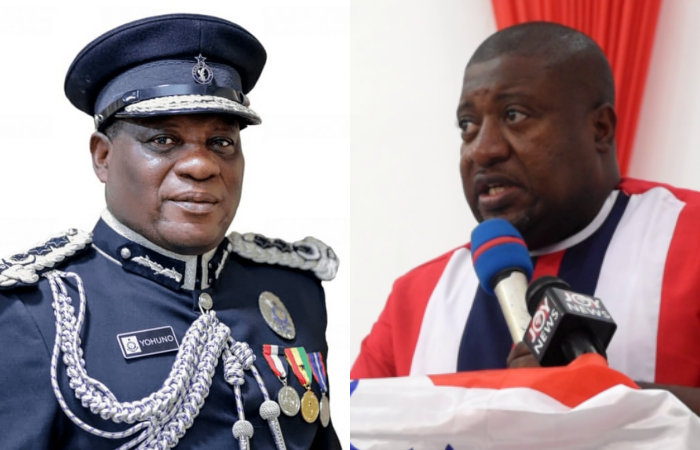Ghana is currently grappling with a concerning rise in insecurity, marked by a series of violent incidents across various regions. The escalating situation has sparked public fear and raised serious questions about the effectiveness of law enforcement agencies, particularly the Ghana Police Service, in maintaining peace and order. Henry Nana Boakye, widely known as Nana B, has voiced his deep concerns, cautioning the Inspector General of Police (IGP) that inaction could tarnish his legacy irrevocably.
Nana B’s warning, delivered during a political campaign launch in Akwatia Constituency, highlighted the growing anxiety among Ghanaians regarding their safety. He specifically referenced a recent incident in Ablekuma, expressing dismay at the lack of significant arrests made in connection with the unsettling event. The incident, details of which remain largely unreported, underscores the seeming inability of the police to effectively address the rising tide of violence and bring perpetrators to justice, fueling public frustration and eroding trust in law enforcement.
The former National Youth Organiser of the New Patriotic Party further emphasized the potential consequences of the state’s failure to act decisively. He warned that if the security situation continues to deteriorate, residents of Akwatia might be forced to take matters into their own hands to protect themselves. However, he explicitly clarified that such actions would not resort to violence, emphasizing a commitment to peaceful means of self-preservation. This statement reflects a growing sentiment amongst communities to seek alternative solutions when faced with perceived inaction from the authorities, potentially leading to a further erosion of public trust in the established security apparatus.
The wave of violence extends beyond Akwatia, painting a grim picture of the national security landscape. Recent weeks have witnessed a series of deadly incidents in various communities, including Asawase, Nalerigu, and Bawku. In Asawase, the brutal killing of a young man under unclear circumstances has left residents mourning and demanding answers. The lack of clarity surrounding the incident underscores the need for thorough investigations and transparent communication from law enforcement to allay public fears and prevent speculation.
Meanwhile, Nalerigu and Bawku have been plagued by recurring violent clashes, resulting in numerous fatalities and injuries. These ongoing conflicts, often rooted in complex socio-political dynamics, highlight the challenges faced by security agencies in maintaining lasting peace in volatile regions. The recurring nature of the violence suggests a need for more comprehensive and proactive strategies to address the underlying causes of conflict and prevent escalation.
The escalating violence across the nation reflects a broader challenge for the Ghana Police Service. The spate of incidents, coupled with the perceived lack of effective response, raises concerns about the capacity and resources of the police to address the growing insecurity effectively. This underscores the urgent need for comprehensive reforms and increased investment in law enforcement to enhance their ability to maintain order, protect citizens, and restore public confidence. The government’s response to this growing crisis will be crucial in determining the future security landscape of the nation. Failure to address these concerns effectively could have profound and long-lasting consequences for the safety and stability of Ghana.


